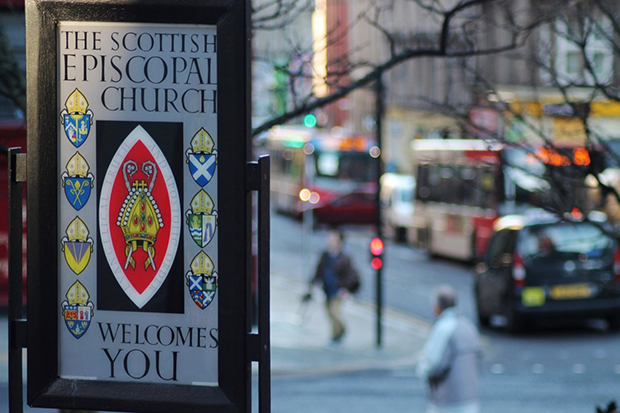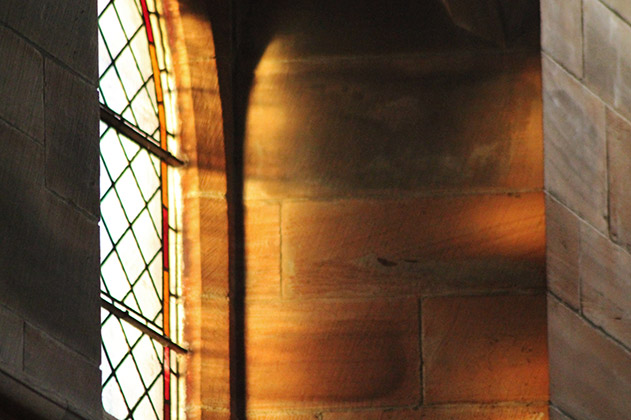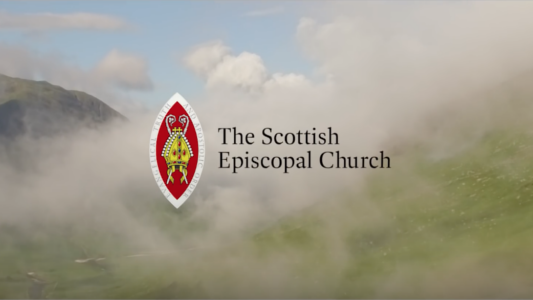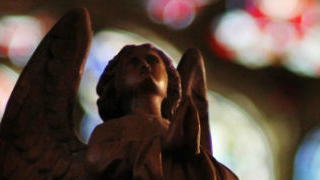In his Easter Sermon the Most Rev David Chillingworth, Bishop of St Andrews, Dunkeld and Dunblane, and Primus of the Scottish Episcopal Church says:
“‘I have seen the Lord’ – That is Mary’s straightforward and startling personal testimony. She has come to the tomb of Jesus with Simon Peter and with the disciple whom Jesus loved. They have come as people through ages have done – to come to terms with the loss of somebody deeply loved by caring for their body after their death. But as she weeps in the gloom of the early dawn she has an experience which changes everything. She sees that the tomb is empty. She meets the person whom at first she thinks is the gardener – but in that transformative meeting he realises that she is in the presence of her Lord. And so she says simply ‘I have seen the Lord.’
“That is the simplest and the best statement of the Easter Gospel. Not ‘His body is gone and they say he is risen’. But simply and personally, ‘I have seen the Lord.’
“Our tendency is to approach the Easter Gospel first as if it is about the promise of life after death. And of course it is. I used to feel myself struggling with it at the funeral in church – the crowded church and coffin of somebody whom I had known and loved over many years. The funeral is about coming to terms with loss and comforting those who are bereaved. But it is also about daring even in the midst of that loss to proclaim resurrection hope. And I can think of myself doing that as all clergy do literally hundreds of times while the voice inside me says, ‘Do you really believe this – is this true for you’ And in the end for me it was resolved not by the elegant words of the theologians but by the simple faith of people whom I loved and respected.
“But the more immediate Easter Gospel is the promise that the life-giving love of God will always move the stones away from the places of death. And death doesn’t just mean death in the funeral sense – it means all the dead places which feed corruption, self-interest, deception, duplicity, racism, sexism, suspicion, cynicism, marginalisation, despair, fear and then some more. It is all of those and more which close down hope in life, which tell us that what we most fear will probably happen, that the rich and powerful will always look after themselves at the expense of the rest of us and in particular at the expense of the poor and powerless.
“When the stale air of decay meets God’s breath that creates new life and the possibility of hope and peace, death truly is no more.
“We are living in strange and difficult times. Predictable patterns are dissolving – assumed consensus is no more. There is in the air a despair about the ability of conventional politics to find answers to some of the big challenges of our age. Migrants and refugees seek hope – terrorist violence in Nice, Berlin, London and Stockholm brings death and suffering into the midst of ordinary lives on ordinary days – the agony of Syria continues
“Yet the Easter Gospel faces all that despair and insists that the ways of love will win over the ways of hate. ‘I have seen the Lord’ confirms that the truth of kindness can be heard over what is callous and dismissive and vindictive. It is a new way of being – a way of being which is shaped by resurrection, which embodies everything which is life-giving, which is so demonstrative of mercy and so exemplary of the truth of Easter that others too will look into the places of death and find them empty.
“ ‘I have seen the Lord’ A personal testimony of conviction – not a worked out statement – but a telling of it as it is.”








